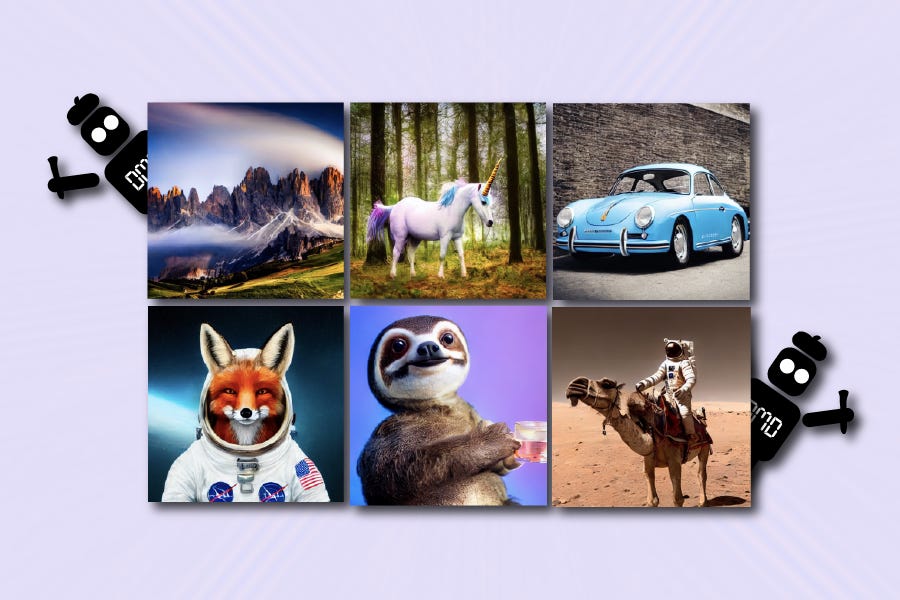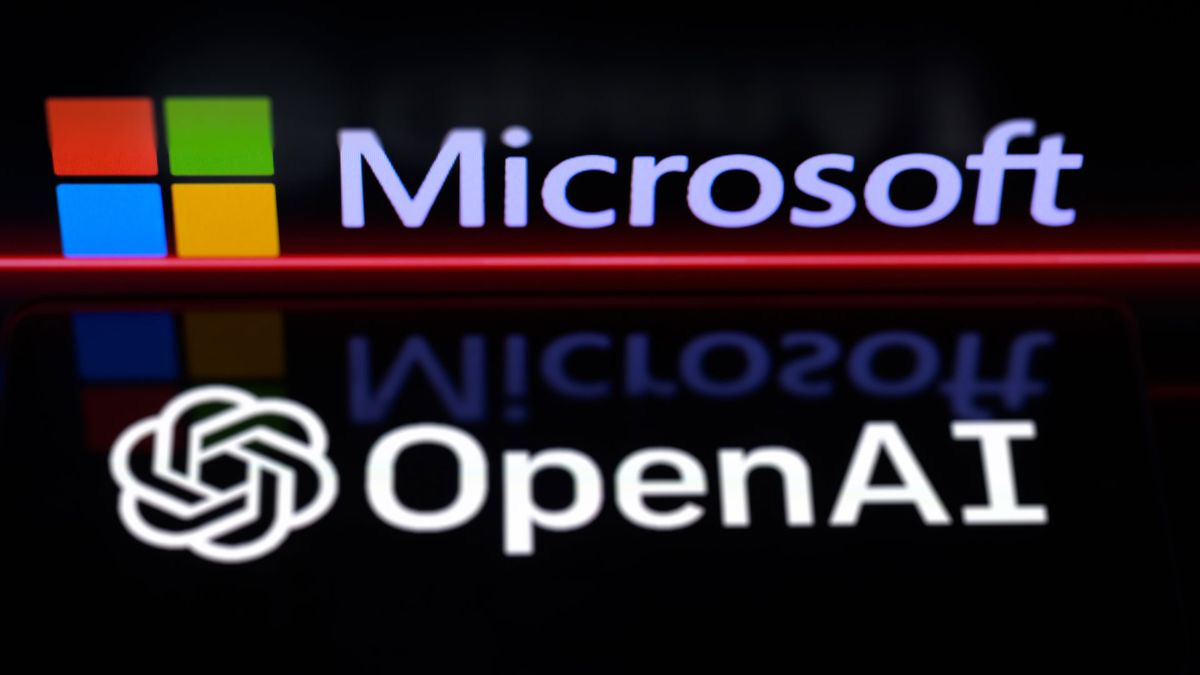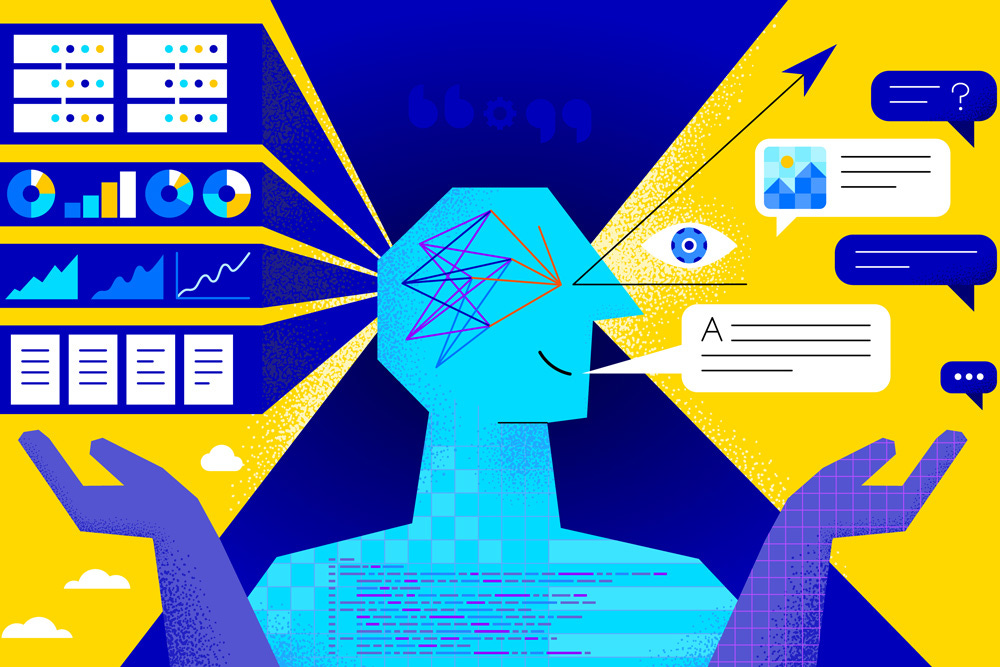Top News
AI generates high-quality images 30 times faster in a single step
Researchers at MIT's Computer Science and Artificial Intelligence Laboratory (CSAIL) have developed a new framework that accelerates the image generation process of diffusion models by 30 times. The framework, known as distribution matching distillation (DMD), simplifies the multi-step process of traditional diffusion models into a single step, while maintaining the quality of the generated images. DMD uses a teacher-student model, teaching a new computer model to mimic the behavior of more complex, original models that generate images. The new model, which is capable of producing high-quality images, could potentially support advancements in fields such as drug discovery and 3D modeling. The DMD framework was tested against traditional methods and showed consistent performance, achieving state-of-the-art one-step generation performance.
New York City welcomes robotaxis — but only with safety drivers
New York City has introduced a new permitting system for autonomous vehicle testing, with a key requirement that a human safety driver must be present at all times. The system is designed to ensure that only companies with prior autonomous vehicle testing experience can apply, and they must provide data from previous tests, including any accidents and instances where safety drivers had to intervene. The city aims to avoid issues experienced in other cities, such as San Francisco, where driverless vehicles have caused traffic obstructions and safety concerns. As part of the application process, companies must also detail their safety driver hiring and training practices, and affirm adherence to best practices from the Society of Automotive Engineers.
OpenAI built a voice cloning tool, but you can’t use it… yet
OpenAI has previewed its Voice Engine, a tool that can clone voices using a 15-second voice sample. The technology, which has been in development for two years, is an expansion of OpenAI's existing text-to-speech API and is already used in the company's AI-powered chatbot, ChatGPT. The Voice Engine model was trained on a mix of licensed and publicly available data, but the company is currently facing a lawsuit over allegations of IP law violation by training its AI on copyrighted content. The tool is not yet available to the public, as OpenAI wants to ensure it is deployed responsibly and has safeguards against misuse. The company is also exploring how the technology could impact the voice actor economy.
Other News
Tools
Introducing Jamba: AI21's Groundbreaking SSM-Transformer Model - Introducing Jamba, the world’s first production-grade Mamba-based model, which combines Mamba and Transformer architectures to optimize memory, throughput, and performance, offering unprecedented efficiency and democratizing access to a massive 256K context window.
Google starts testing AI overviews from SGE in main Google search interface - Google is testing AI overviews in the main Google Search results, even for users who have not opted into the Google Search Generative Experience labs feature, with a focus on complex queries and a goal to gather feedback from a broader population.
Microsoft Teams is getting smarter Copilot AI features - Microsoft is enhancing its AI-powered Copilot in Microsoft Teams, allowing for improved meeting chat invocation, message composition, call recaps, and hybrid meeting features.
Adobe’s new GenStudio platform is an AI factory for advertisers - Adobe has announced a new AI-powered ad creation platform, GenStudio, which aims to make it easier to use the company’s generative AI tools for building marketing campaigns, alongside other AI-powered tools and APIs for automating repetitive creative tasks.
Found means fixed: Introducing code scanning autofix, powered by GitHub Copilot and CodeQL - Code scanning autofix, powered by GitHub Copilot and CodeQL, is now available in public beta for GitHub Advanced Security customers, helping developers remediate vulnerabilities faster and more efficiently.
Announcing Grok-1.5 - Grok-1.5 introduces the capability to process long contexts of up to 128K tokens, enabling it to utilize information from substantially longer documents and demonstrating powerful retrieval capabilities.
Business
OpenAI and Microsoft reportedly planning $100 billion datacenter project for an AI supercomputer - OpenAI and Microsoft are reportedly planning a $100 billion datacenter project to build an AI-focused supercomputer with millions of GPUs, potentially costing "in excess of $115 billion" and aiming to be operational by 2028.
Amazon spends $2.75 billion on AI startup Anthropic in its largest venture investment yet - Amazon makes its largest outside investment in its three-decade history by backing Anthropic, a San Francisco-based startup that's a frontrunner in generative artificial intelligence, competing with OpenAI and ChatGPT, in a strategic move to gain an edge in the AI race.
Apple picks Baidu’s Ernie Bot for its iPhone 16 in China, report says - Apple has chosen Baidu's Ernie Bot to provide AI technology for its iPhone 16 and other products in China, based on compliance considerations and talks with various Chinese companies.
Samsung is beating Apple in the race to bring AI to smartphones - Samsung is ahead of Apple in bringing generative AI to smartphones, with its free AI features getting an update and expanding to more Samsung phones, while Apple is reportedly in talks with Google and considering leveraging OpenAI's model for future iPhones.
Mitre Opens Lab to Test US Government’s Artificial Intelligence - Mitre has opened a lab to test AI systems used by federal agencies, focusing on security flaws and risks, including data leaks and explainability.
How Adobe’s bet on non-exploitative AI is paying off - Adobe's responsible approach to AI training, using licensed data and compensating creators, aims to address the ethical and legal concerns surrounding generative AI models.
Elon Musk says all premium subscribers on X will gain access to AI chatbot Grok this week - Elon Musk announces that all premium subscribers on X will gain access to the AI chatbot Grok this week, potentially in an effort to retain users and compete with other popular chatbots.
Accenture Invests in Sanctuary AI to Bring AI-Powered, Humanoid Robotics to Work Alongside Humans - Accenture has invested in Sanctuary AI to develop AI-powered humanoid robots that can work alongside humans, addressing labor shortages and transforming the workforce of the future.
Chip Startup Celestial AI Lands Massive $175M Series C - Celestial AI secures $175 million in Series C funding to advance its photonic fabric platform, which separates compute and memory to enable faster and more energy-efficient processing of extensive AI.
Benchmark Backs AI Video Startup HeyGen at $440 Million Valuation - AI video startup HeyGen, backed by Benchmark at a $440 million valuation, faces scrutiny over its Chinese origins and investments but emphasizes ethical use and impressive financial growth.
Humanoid robots are joining the Mercedes-Benz workforce - Mercedes-Benz is introducing humanoid robots, called Apollos, to take over dull, repetitive, and physically demanding tasks on the factory floor, potentially revolutionizing car manufacturing.
Research
Large language models use a surprisingly simple mechanism to retrieve some stored knowledge - Large language models use a surprisingly simple linear function to retrieve and decode stored knowledge, allowing researchers to probe the model and correct falsehoods, potentially reducing the tendency for incorrect or nonsensical answers.
On the Conversational Persuasiveness of Large Language Models: A Randomized Controlled Trial - AI-driven language models, particularly GPT-4, were found to be more persuasive in direct conversations with humans, especially when personalized with the opponent's information, raising concerns about the governance of social media and online environments.
Here's Proof You Can Train an AI Model Without Slurping Copyrighted Content - AI models can be trained without using copyrighted materials, as evidenced by the release of a large AI training dataset composed entirely of public domain text and the certification of a large language model developed using a curated training dataset of legal, financial, and regulatory documents.
Cobra: Extending Mamba to Multi-Modal Large Language Model for Efficient Inference - Cobra is a linear computational complexity multi-modal large language model that integrates the efficient Mamba language model into the visual modality, achieving competitive performance with current computationally efficient state-of-the-art methods and overcoming visual illusions and spatial relationship judgments.
A comparison of Human, GPT-3.5, and GPT-4 Performance in a University-Level Coding Course - AI-generated submissions in a university-level coding course were compared to student work, with students outperforming GPT-4, even with prompt engineering, and human evaluators accurately identifying the authorship of the submissions.
MyVLM: Personalizing VLMs for User-Specific Queries - Personalizing VLMs for user-specific queries by enabling them to learn and reason over user-provided concepts, such as recognizing individuals in images and tailoring responses to reflect personal experiences and relationships.
Gamba: Marry Gaussian Splatting with Mamba for single view 3D reconstruction - Efficiently reconstructing 3D assets from single images is achieved through the introduction of Gamba, an end-to-end amortized 3D reconstruction model emphasizing 3D Gaussian splatting and a Mamba-based sequential network for context-dependent reasoning and linear scalability.
Up to 17% of AI conference reviews now written by AI - AI is now responsible for up to 17% of reviews at AI conferences, raising questions about its impact on scientific discovery.
Common Corpus: A Large Public Domain Dataset for Training LLMs - Debate over the necessity of copyrighted materials in training top AI models is challenged by the emergence of the Common Corpus initiative, which offers evidence that large language models can be trained without contentious copyright use.
Concerns
Deepfake Kari Lake video shows coming chaos of AI in elections - AI-generated deepfake videos are being used to demonstrate the potential chaos and misinformation in upcoming elections, prompting concerns and responses from officials and experts.
EU Warns Election Deepfakes Start to Surface in Member Nations - EU officials have observed deepfakes emerging in member nations' elections, raising concerns about the dangers of AI and potential interference.
Google's new AI search results promotes sites pushing malware, scams - Google's new AI-powered search results are promoting scam sites that redirect visitors to unwanted Chrome extensions, fake iPhone giveaways, browser spam subscriptions, and tech support scams, making it easier for users to fall for scams.
Revealed: a California city is training AI to spot homeless encampments - San Jose, at the heart of Silicon Valley, is training AI to detect homeless encampments and lived-in vehicles, aiming to address complaints more efficiently, but concerns arise about privacy violations and the potential for further crackdowns on unhoused individuals.
Women’s faces were stolen for AI ads pushing impotence pills and Putin - AI technology is being used to create deepfake videos of individuals, including women, to promote products and ideas without their consent, leading to a new form of identity theft and potential harm to the victims.
Kidnapping scam now using AI to terrify parents - AI is being used to make kidnapping scams more convincing by using recordings and online posts to appear realistic, targeting individuals through social media and posing a serious threat.
BBC Will Stop Using AI For ‘Doctor Who’ Promotion After Receiving Complaints - BBC will stop using AI for Doctor Who promotion after receiving complaints, despite initially seeing it as an opportunity to speed up content promotion.
NYC’s AI Chatbot Tells Businesses to Break the Law – The Markup - NYC's AI chatbot, powered by Microsoft, is providing incomplete and inaccurate information on housing policy, worker rights, and business regulations, leading to potential legal liabilities and misinformation for businesses and individuals.
Policy
The White House Puts New Guardrails on Government Use of AI - US government issues new rules requiring caution and transparency in federal agencies' use of AI, aiming to protect the public and promote AI innovation while serving as a model for global action.
Israel Deploys Expansive Facial Recognition Program in Gaza - Israel deploys facial recognition program in Gaza, leading to the quick identification and interrogation of a Palestinian poet at a military checkpoint.
NYC will test AI gun detectors on the subway - NYC plans to test AI gun detectors on subway turnstiles in partnership with Evolv, despite scrutiny over the accuracy of the technology and concerns about false alarms.
Scoop: Congress bans staff use of Microsoft's AI Copilot - Congress bans staff use of Microsoft's AI Copilot due to cybersecurity concerns and potential data leakage, prompting Microsoft to develop government-oriented tools to address these issues.
How A.I. Chatbots Become Political - AI chatbots are increasingly being used as tools to understand the world, but they are also developing political leanings, with many leaning left and libertarian, which can impact the information they provide and potentially shape our opinions.
Analysis
In One Key A.I. Metric, China Pulls Ahead of the U.S.: Talent - China is pulling ahead of the U.S. in producing A.I. talent, with almost half of the world’s top A.I. researchers coming from China, compared to 18 percent from U.S. undergraduate institutions.
Americans’ use of ChatGPT is ticking up, but few trust its election information - Americans are increasingly using ChatGPT for work, learning, and entertainment, but there is low trust in its election information, with only 2% having a great deal or quite a bit of trust.





